
The University of Texas at Austin Osher Lifelong Learning Institute is excited to announce an online partnership with the Osher National Resource Center (NRC) at Northwestern University. Courses/seminars are hosted by the Osher NRC via Zoom, with participants from all over the country. To participate, UT OLLI membership required.
To participate:
- Review the course/seminar listing below.
- Login to the Member Website to register.
- Please choose the online course(s)/seminar(s) you’re interested in, priced at $65 each.
For more information, please visit:
Osher Online Learning registration for Spring 2026 term: March 02 - 16, 2026.
During that date range, please enter the UT OLLI Member Website to sign-up.
Reach out to the UT OLLI office with any questions at utolli@austin.utexas.edu or 512-471-3124.
Spring 2026 OLLI Online Courses
Spring session spans 8 weeks: 03/30/2026 - 05/23/2026. Each course is scheduled for 6 consecutive weeks.
Music: Controversies and Curiosities

Wednesdays, April 15 - May 20, 2026
4:00 - 5:30PM Central
Music has always stirred controversy - sometimes through bold originality, other times through scandal. In the Classical tradition, composers like Beethoven, Stravinsky, and Smetana pushed boundaries that shocked audiences and critics. On Broadway and in Hollywood, changing attitudes toward race, consent, gender, and sexuality have prompted debates and revisions of works such as Annie Get Your Gun and South Pacific. Is political correctness a step forward in creating more inclusive art, or does it risk silencing important cultural heritage? Should works reflecting outdated views on religion, domestic violence, or prejudice be altered—or preserved as historical context? We will also explore plagiarism and musical borrowing in pop and film music, including controversies surrounding The Beatles, Pink Floyd, and Peter Frampton. Filled with audiovisual examples, anecdotes, and humor, this course offers a lively dive into music’s most provocative debates and scandals.
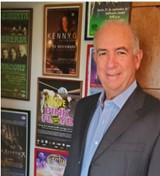
Speaker: Emanuel Abramovits
Emanuel Abramovits, MBA, is a mechanical engineer and has also been a concert promoter for over two decades. He is directly involved in events by international artists like Itzhak Perlman, Gustavo Dudamel, Sarah Brightman, Roger Hodgson, ASIA, Journey, Kenny G., and many more. Abramovits has designed and staged many original orchestral events, including an Event of the Year winner and several world premieres. He served as the cultural director at Union Israelita De Caracas from 2008 to 2019, releasing books and organizing film cycles, concerts, and art exhibits. He consistently teaches online and in-person across the US.
California Uncovered: A Journey Through Time, Place, and Identity
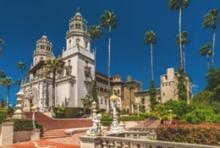
Fridays, April 10 - May 15, 2026
2:00 - 3:30PM Central
California is more than a state. It is an idea, a dream, and a contradiction. It is where snow-capped peaks rise above sun-drenched deserts, and where misty coastlines and ancient forests stand alongside cities built on myth, ambition, and reinvention. In this immersive course, we will journey through California’s sweeping history - from its earliest Indigenous cultures and diverse ecosystems to its transformation under Spanish, Mexican, and American rule. We will uncover the people, events, and forces that shaped the Golden State into a global icon of migration, innovation, and cultural change. We will explore the missions, the Gold Rush, the railroad, Hollywood’s allure, and Silicon Valley’s disruptive genius, while also challenging myths and amplifying voices too often left out of mainstream narratives. We will gain a deeper understanding of what it has meant to be Californian across eras, enriching how we experience the state today.
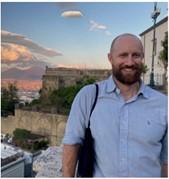
Speaker: Emanuel Abramovits
Anthony Antonucci, PhD, is a historian whose teaching and scholarship explore the intersections of foreign relations, nationalism, race, and immigration policy in U.S. history since 1750. A Fulbright fellow, Antonucci has also held research appointments at the Massachusetts Historical Society, the American Antiquarian Society, and the University of Connecticut Humanities Institute. He teaches courses in U.S., world, and California history, as well as African American, Latinx, and women’s studies at colleges across Southern California, including Cal Poly Pomona, the University of La Verne, and Citrus College.
The Lost Generation
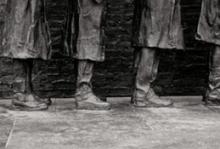
Wednesdays, April 15 - May 20, 2026
2:00 - 3:30PM Central
This course explores the dramatic cultural shifts in thinking and living that reshaped America and Western Europe between the end of World War I and the Great Depression. Known as the Roaring Twenties, the Jazz Age, and the era of the Lost Generation, this period redefined values, norms, morals, and manners. We will immerse ourselves in the culturally and socially vibrant ambiance of 1920s Paris, where expatriate writers gathered in cafés and salons to challenge convention and invent new ways of living and writing. Through F. Scott Fitzgerald’s Babylon Revisited and Bernice Bobs Her Hair, Ernest Hemingway’s The Sun Also Rises, and Gertrude Stein’s The Autobiography of Alice B. Toklas, we will examine how their lives and works reflected both the exhilaration and disillusionment of the age. We will consider how the legacy of this remarkable decade continues to influence literature and culture today.
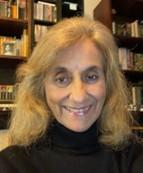
Speaker: Ferdâ Asya
Ferdâ Asya, PhD, Professor of English, has taught at universities worldwide and lived in Africa, Asia, Europe, North America, and the Middle East. Specializing in 19th–20th century American literature with a focus on Edith Wharton, her interests include international literature and American expatriate writing in Europe. She has published widely on authors from Achebe to Stein and edited American Writers in Paris: Then and Now (2025), Teaching Edith Wharton’s Major Novels and Short Fiction (2021), and American Writers in Europe (2013).
Place, Memory, and Environmental Psychology

Tuesdays, April 7 - May 12 2026
12:00 - 1:30PM Central
How much of what we are is related to the places we have lived and experienced? What is the importance of place in our most memorable experiences? Is it possible to find any memory that is not physically situated somewhere? This course is an invitation to reflect on these and other meaningful questions about the psychological and emotional relationships between people and their environments. Drawing on a variety of disciplines, including psychology, geography, architecture, and design, this course will introduce environmental psychology and its contribution to understanding how physical environments influence our behavior, cognition, identity, and memory. Using place-based methodologies, we will discuss concepts such as place attachment, place identity, and cognitive maps. We will reflect on issues of memory, meaning of home, trauma, displacement, and the power of nature in our psychological well-being.
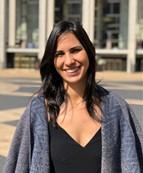
Speaker: Fernanda Blanco Vidal
Fernanda Blanco Vidal is a PhD Candidate in Environmental Psychology at the Graduate Center, CUNY. She holds degrees in Psychology and Sociology from the Federal University of Bahia, where she published Nostalgia, but not Sadness – Psychology, Memory and Forced Displacement. Her dissertation explores how people’s sense of place shifted during the COVID-19 pandemic. With over a decade of higher education experience in Brazil and the US, she develops place-based methodologies linking psychology, memory, and displacement.
JFK's Quest for Peace: Lessons for Turbulent Times
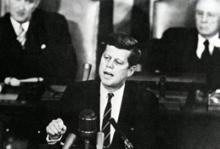
Thursdays, April 2 through May 7, 2026
12:00 - 1:30PM Central
Throughout his 1000-day presidency, John Kennedy pursued peace through a broad spectrum of initiatives. He saw a connection between learning and leadership and sought to use military deterrence, diplomacy, and soft power in novel ways. In this course, we will explore how his character and life experiences were the origins of those efforts. We will evaluate his powers of persuasion by listening to key speeches, and we will assess his successes and failures and their relevance to today’s world.
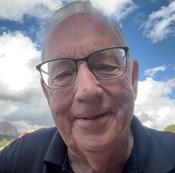
Speaker: Charles Blum
Charles Blum served as a US diplomat and trade policy official for 17 years before launching a consulting firm that operated in Washington DC and Central Europe. He has developed more than four dozen courses focusing on global politics, war and peace, and international cooperation. He earned degrees in history from Eastern University and in international relations from the University of Pennsylvania.
Comic Book Literature

Tuesdays, March 31 - May 5, 2026
2:00 - 3:30PM Central
Comics, the combination of words and pictures to tell stories, has been a part of human communication for far longer than many realize, stretching from cave paintings on stone walls to the Bayeux Tapestry to the latest adventures of Batman and Spider-Man. Comics are an incredibly malleable medium, a literary artform that has too often been limited by the public perception of comics as merely a platform for four-color super-heroics. This course will trace the history of comics as a way of telling intimate and epic stories, exploring social and political issues, and capturing the cultural climate via the deceptive simplicity of panels, word balloons, and lines drawn on paper or displayed on device screens. And yes, we will also take a look at superheroes. Readings will include Understanding Comics, Watchmen, Maus: A Survivor’s Tale, Fun Home, and Persepolis.
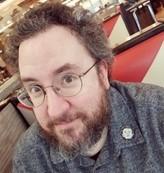
Speaker: Arnold Blumberg
Arnold Blumberg, PhD, is a publisher, author, artist, and pop culture historian. He has taught courses in media literacy and other cultural topics at University of Baltimore and other Baltimore colleges. Blumberg spent fifteen years in the comic book industry, curated a pop culture museum, and currently runs his own publishing company, ATB Publishing.
Ghosts in the White House: The People Behind Presidential Speeches
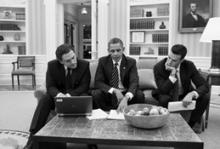
Mondays, March 30 - May 4, 2026
2:00 - 3:30PM Central
Have you ever wondered who writes presidential speeches? This course examines the changes in presidential speechwriting, from the earliest speechwriters in George Washington’s administration to contemporary speechwriters. Yes, Hamilton did help Washington write his Farewell Address. But, no, Lincoln did not write the Gettysburg Address on the back of an envelope. We will examine the process used by a wide range of presidents and look at copies of speechwriting drafts from FDR, Truman, Eisenhower, Kennedy, Carter, and George H.W. Bush. We will view video and audio clips from speeches and from former White House speechwriters describing the process.
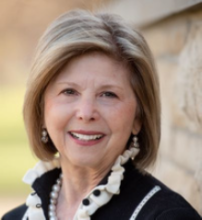
Speaker: Diana Carlin
Diana Carlin, PhD is Professor Emerita of communication at Saint Louis University. For 30 years, she has taught courses on and written about First Ladies. She is the co-author of U.S. First Ladies: Making History and Leaving Legacies and Remember the First Ladies: America's History-Making Women. Carlin has published articles and book chapters on a variety of First Ladies and researches and writes on the topics of women in politics, presidential communication, and political debate.
From Leo XIII to Leo XIV: History of 20th and 21st Century Popes
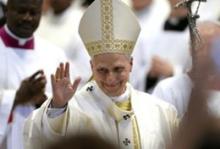
Tuesdays, April 7 - May 12, 2026
4:00 - 5:30PM Central
The death of Pope Francis and the election of the first US born Pope have been in the news repeatedly in the last few months, capturing the imagination of many people, including non-Catholics. Who are these men? What are their life stories? How were they similar to and different from each other? In this course, we will discuss the lives and dominant perspectives of the last ten Popes, exploring their most significant positions and their influence on world affairs.
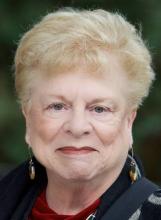
Speaker: Oliva Espin
Oliva Espín, PhD, is Professor Emerita of Women’s Studies at San Diego State University and the California School of Professional Psychology. She completed her postdoctoral work at Harvard and is a pioneer in feminist therapy with women from diverse cultural backgrounds. Her recent books include Women, Sainthood, and Power: A Feminist Psychology of Cultural Constructions and My Native Land is Memory: Stories of a Cuban Childhood (2021 San Diego Book Award). She received APA’s Outstanding Lifetime Contributions to Psychology Award.
A Beautiful Brain

Thursdays, April 9 - May 14, 2026
10:00 - 11:30AM Central
Most discussions about aging focus on lifespan. Yet what matters to most of us is brainspan — how long our mind remains sharp, resilient, and wise. This course explores how the brain ages naturally and unnaturally, and what the latest science reveals about protecting memory, balance, and clarity. We will look at the difference between normal cognitive changes and early signs of dementia, while emphasizing practical, evidence-based prevention strategies. Topics will include brain function and neuroplasticity, how brain shrinkage affects falls and sensory health, the role of nutrition and supplements in fueling cognition, and the impact of sleep, stress, social ties, and purpose on long-term resilience. Each session combines accessible science, simple self-tests, and engaging take-home practices. We will also build our own Cognitive Health Scorecard — a personalized tool to identify strengths, track habits, and focus on the small changes that make the biggest difference.
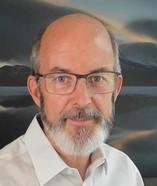
Speaker: Scott Fulton
Scott Fulton is recognized internationally as a “Redefiner” in the positive aging space. Accustomed to big systems engineering challenges, Fulton focuses his research on improving adult aging outcomes. He teaches Lifestyle Medicine and Aging, is an American College of Lifestyle Medicine member, sits on the prestigious True Health Initiative Council, and is past president of the National Aging in Place Council. His critically acclaimed book, WHEALTHSPAN, More Years, More Moments, More Money, hit #1 on Amazon, and he is known for creating the MEDAC system for optimal aging. Fulton is a multiple Ironman triathlete and lives in a demonstration home he recently designed and built for the future of optimal aging across a lifespan.
Frank Lloyd Wright and Modern Architecture

Tuesdays, April 21 - May 26, 2026
6:00 - 7:30PM Central
Frank Lloyd Wright (1867–1959) was one of the most influential architects of the modern era, designing nearly one thousand buildings over his prolific career. This course surveys the breadth of Wright’s practice, from his iconic Prairie style houses and celebrated works like Fallingwater and the Guggenheim Museum, to lesser-known projects in affordable housing and utopian city planning. Participants will explore how Wright’s designs were shaped by, and responded to, the sweeping cultural shifts of modernism, including the industrial revolution, new technologies, scientific advancements, and progressive social movements. Through visual analysis and historical context, the course offers a deeper understanding of Wright’s enduring impact on American architecture and design.
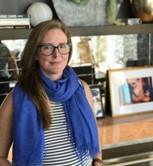
Speaker: Jennifer Gray
Jennifer Gray, PhD, is vice president of the Taliesin Institute at the Frank Lloyd Wright Foundation. Her research explores how modern architects used design to advance social change at the turn of the 20th century. She has curated major exhibitions, including Frank Lloyd Wright at 150 at MoMA and The Imperial Hotel at 100, which toured Japan. Gray has taught at Columbia, Cornell, and MoMA, and formerly served as Curator of Drawings and Archives at Avery Architectural & Fine Arts Library.
Great Science Stories

Thursdays, April 9 - May 14, 2026
2:00 - 3:30PM Central
Science is full of surprises. Dyes, accidentally discovered, launched the modern pharmaceutical industry. A failed experiment opened the door to new physics. A geologist studying Earth’s age ended up taking on the oil companies to ban leaded gasoline. These stories remind us that discoveries are never just dry facts. They are moments of creativity, struggle, and chance, with consequences that ripple far beyond the laboratory. In this course, we will explore the human side of science, situating breakthroughs in the context of their times and tracing how they reshaped both knowledge and society. Along the way, we will tour centuries of discovery across biology, chemistry, physics, and more, asking not just what was found, but how it was found, and why it still matters today.
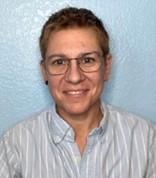
Speaker: Johnnie Hendrickson
Dr. Johnnie Hendrickson is a Teaching Professor in the School of Molecular Sciences at Arizona State University; he holds a PhD in chemistry, and is the author of the textbook “Chemistry in the World.” His academic work focuses on science communication, the reciprocal relationship between science and society.
AI for Regular People

Thursdays, April 2 - May 7, 2026
6:00 - 7:30PM Central
Artificial Intelligence (AI) is reshaping nearly every aspect of our lives, from chatbots and autonomous vehicles to precision medicine and robotic art. Back by popular demand, this updated course will revisit key concepts from the previous offering (such as the history of AI and its surprising comeback) but updated examples and discussion topics will reflect the latest developments. In these jargon-free sessions, we will explore what makes modern AI different from earlier attempts, how it works, and where it’s headed. We will consider the human side of AI including the jobs it might replace or create, the ethical dilemmas it raises, and how it could help, or harm, our daily lives. Whether we are curious, cautious, or excited about AI, this course will provide ways to understand and engage with this powerful technology.
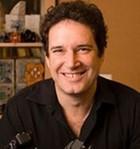
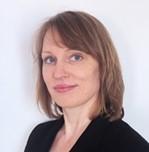
Speakers: Hog Lipson & Melba Kurman
This course is co-taught by Hod Lipson, PhD, Professor of Engineering and Data Science at Columbia University, and author and technology analyst Melba Kurman. Dr. Lipson directs Columbia’s Creative Machines Lab, where his team builds artificially intelligent robots that can design, create, and express emotion. One of the world’s most-cited academic roboticists, his work has been featured in The New York Times, NPR, TED, and Quanta. Melba Kurman has held roles at Microsoft, Cornell University, and several tech startups. She writes about emerging technologies and their societal impact. Together, they co-authored Driverless and Fabricated: The Promise and Peril of 3D Printing, and are frequent speakers on AI and innovation. They divide their time between New York City and the Berkshires.
The Scopes Monkey Trial: Then and Now
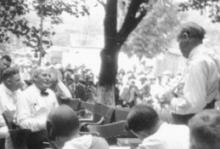
Tuesdays, March 31 - May 5, 2026
10:00 - 11:30AM Central
In July 1925, Clarence Darrow, William Jennings Bryan, and a supporting cast of fascinating characters converged upon Dayton, Tennessee for what became known as The Scopes Monkey Trial. Religion. Science. Public education. Free speech. Textbooks. Participants fought about all of these for eight days in an epic battle that was broadcast to the nation. One hundred years later, we are still fighting about these same issues. This course will be a deep dive into the trial including why it was held in Dayton, Tennessee, how Bryan and Darrow got involved, what actually went on in the courtroom, whether Inherit The Wind accurately depicts what occurred, and who won and lost the case. Perhaps most importantly, we will discuss why we should care today.
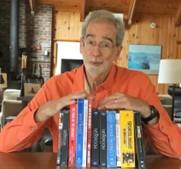
Speaker: Douglas Mishkin
Doug Mishkin, an experienced trial lawyer, partnered with Americans United for Separation of Church and State to foster dialogue in Dayton, TN, site of the Scopes Monkey Trial. He has interviewed Pulitzer Prize-winning historian Edward J. Larson (Summer for the Gods), civil rights attorney Fred Gray, and George Washington Law Professor Jeffrey Rosen, president of the National Constitution Center, along with other distinguished lawyers and historians on law, history, and constitutional issues.
Siberia: Russia's Frozen Wasteland or Economic Heartland?

Wednesdays, April 1 - May 6, 2026
12:00 - 1:30PM Central
Siberia constitutes three quarters of Russia’s territory, but only a quarter of the country’s population lives there. Yet, the role of Siberia in making Russia a large and wealthy empire should not be underestimated. In this course, we will discuss Siberia’s role in the rise, and possibly imminent dismantling, of Russia as a unified state; Siberia’s economic importance, both historically and today; the region’s indigenous peoples and their cultures; its role as a penal colony throughout history and how that function transformed the region; its importance for climate change and environmental issues; and the relations between Russia and China, in which Siberia plays a crucial role.
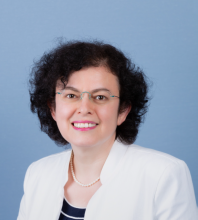
Speaker: Asya Pereltsvaig
Asya Pereltsvaig received a degree in English and History from the Hebrew University of Jerusalem and a PhD in Linguistics from McGill University. She taught at Yale and Stanford, and has been teaching in lifelong education programs since 2010. Her expertise is in language and history, and the relationship between them. Her most recent book, Languages of the World: An Introduction, 4th edition (2023) was published by Cambridge University Press. Asya is a popular instructor for several OLLI programs around the country and was the faculty host for the OLLI trip to the Baltic countries and St. Petersburg in July 2017.
A History of Street Art
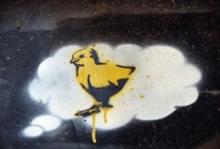
Wednesdays, April 1 - May 6, 2026
10:00 - 11:30AM Central
Art in the streets (including graffiti, murals, stickers, paste-ups, and other public installations) offers powerful means of expression for marginalized voices, shapes urban environments, and presents competing visions of community life. Unlike art made for museums or the commercial market, street art is often counter-institutional, engaging social issues from critical perspectives. This course examines graffiti and street art in the US and beyond, exploring their histories, motivations, and global connections. Participants will consider the rise of the mural movement, strategies for preserving and presenting street art, its increasing institutionalization, and its potential to foster social change.
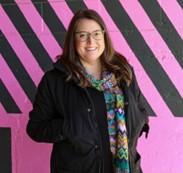
Speaker: Heather Shirey
Heather Shirey, PhD, is a Professor of Art History at the University of St. Thomas in Minnesota. Her research explores race and identity, migration and diasporas, and the role of monuments, memorials, and street art in shaping public space. As part of the Urban Art Mapping team, she co-created the George Floyd and Anti-Racist Street Art Database. Her work examines how street art documents collective experience and functions as activism, healing, and critical engagement.
Writing the Personal Essay: Finding Your Story

Saturdays, April 18 - May 23, 2026
1:00 - 2:30PM Central
The personal essay is one of the oldest and most enduring forms of creative nonfiction, originating with Michel de Montaigne and continuing today as a versatile form that blends storytelling, reflection, and analysis. In this course, we will explore the personal essay as both a literary art and a tool for self-expression. We will ask what defines a personal essay: a true narrative drawn from our own lives, shaped with theme, structure, tone, and voice. Through readings, discussion, writing exercises, and drafting our own personal essays, we will study essential elements such as narrative arc, scene-setting, reflection, honesty, and perspective. We will discover how personal essays capture unique voices and reveal singular insights. Whether writing for publication, personal growth, or the pleasure of crafting words, this course will help us find our voices, tell our stories with clarity, and better understand the enduring power of the personal essay.
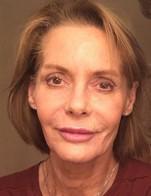
Speaker: Lisa Stolley
Lisa Stolley, professor of English at the University of Illinois Chicago and Northwestern University, is a published fiction author. Her short stories have appeared in numerous literary journals, earning an Illinois Arts Council Award, a Pushcart Prize nomination, and first prizes from the Washington Review and Georgia State Review. Her nonfiction has been published in Today’s Chicago Woman and the Chicago Reader. Stolley teaches scientific writing at UIC’s School of Public Health and is a legal writer for immigration attorneys.
Violinists: Performers and Composers

Mondays, April 6 through May 11, 2026
10:00 - 11:30AM Central
Why do so many great violinists also become composers? This course will explore the fascinating legacy of violinist-composers across history, including Baroque virtuosos like Heinrich Biber, Romantic legends like Niccolò Paganini, and 20th century innovators like George Enescu and Grazyna Bacewicz. Through listening, discussing, and studying visual materials, we will examine how these artists wrote music tailored to their instruments and themselves. Taught by a professional violinist, this course offers a behind-the-strings look at how performance and composition intertwine in the hands of the same creative mind.
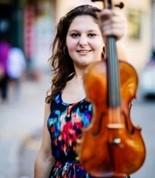
Speaker: Ilana Zaks
Ilana Zaks, professional violinist, educator, and multidisciplinary artist, is First Violin with the Seattle Symphony and Seattle Opera. A graduate of the New England Conservatory and Yale School of Music, she studied under renowned violinists Donald Weilerstein and Ani Kavafian and spent nearly a decade working with Itzhak Perlman through the Perlman Music Program. Recently appointed to the Boston University Tanglewood Institute faculty, Zaks is passionate about connecting audiences to music through storytelling, performance, and dialogue.
Winter 2026 OLLI Online Courses
Winter session spans 6 weeks: 01/12/2026 - 03/07/2026. Each course is scheduled for 6 consecutive weeks.
The Magic Behind Film Scores: Exploring the Role of Music in Great Movies
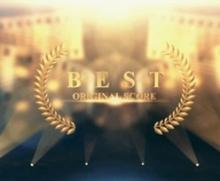
Wednesdays, January 14 - February 18, 2026
4:00 - 5:30PM Central
Discover how film music enhances storytelling, sets mood and place, defines character, and blends styles—jazz, classical, pop—into powerful cinematic impressions. We will discuss how composers shape emotion across genres like drama, romance, comedy, sci-fi, and westerns. From The Jazz Singer to James Bond, we will trace the evolution of film scores, spotlighting legendary composers such as Bernard Herrmann, Ennio Morricone, and John Williams. Celebrate the artistry of film music and its lasting emotional impact.
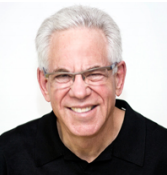
Speaker: Mike Agron
Born in LA’s entertainment scene, Mike is a former high-tech exec and entrepreneur who now creates and delivers dynamic, story-driven seminars on music and entertainment. With a storyteller’s eye and a DJ’s ear, he’s led 15 acclaimed seminar series, each spotlighting a different facet of music and entertainment, for the Sacramento Renaissance Society and national lifelong learning groups including OLLI, Osher Online, Encore Learning, and more.
The American Revolution Beyond the British Empire
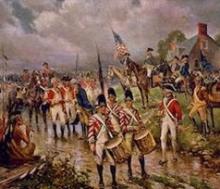
Saturdays, January 17 - February 21, 2026
12:00 - 1:30PM Central
This course reframes the American Revolution as a global event shaped by imperial rivalries and geopolitical forces. Each session focuses on a different group—Germans, French, Spaniards, South Asians, and others—revealing how their experiences intersected with the collapse of British rule in North America. By viewing the Revolution through a global lens, participants will uncover new perspectives on its causes, course, and consequences.
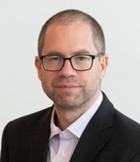
Speaker: Rick Bell, PhD
Richard Bell, PhD, is Professor of History at the University of Maryland and author of Stolen, a finalist for the George Washington and Harriet Tubman Prizes. A National Endowment for the Humanities Public Scholar and Carnegie Fellow, he has held fellowships at Yale and Cambridge. His latest book, The American Revolution and the Fate of the World, was published in 2025.
Invisible Intelligence: The Unseen Algorithms Reshaping Your Daily Life

Thursdays, January 15 - February 19, 2026
4:00 - 5:30PM Central
Artificial Intelligence (AI) shapes our daily lives in subtle yet powerful ways. In this non-technical course, we will explore six case studies that reveal how AI systems work, the ethics behind machine decision-making, and the impact of these technologies on our world. We will gain a deeper understanding of AI’s current influence—and the possibilities ahead.
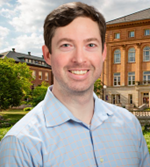
Speaker: Eliot Bethke
Eliot Bethke is a PhD candidate in computational bioengineering at the University of Illinois Urbana-Champaign. He previously worked in research and development at several Midwest start-ups, focusing on product design and manufacturing. After running a summer internship program, he shifted his focus to education and now shares his expertise in hardware and software development with future engineers.
Landscape & Adventure Photography: An Introduction
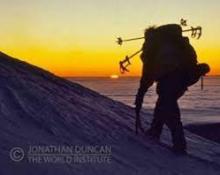
Mondays, January 26 - March 02, 2026
2:00 - 3:30PM Central
This workshop will introduce participants to the skills and techniques used to create professional quality images of their adventures in the natural world. Topics will include controlling exposure, using depth of field, motion effects, the principles of visual communication, and the qualities of natural light. The course will incorporate slide-illustrated lectures, group discussions, and ample time for student feedback.
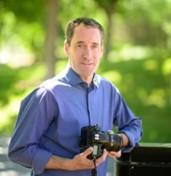
Speaker: Jonathan Duncan
Jonathan Duncan is a photojournalist, writer, teacher, and public speaker with more than 25 years of experience. His work has been published in National Geographic, The Himalayan Journal, Sailing, Rock and Ice, and by the University of Utah Press. He has taught at the Art Institute of Portland, Western Washington University, Westminster University, and the University of Utah’s Osher Institute. His work explores humanity’s complex relationship with the natural world, often in remote landscapes and cultures.
Judaism, Christianity, and Islam: A Comparative Exploration
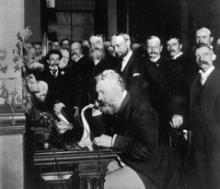
Thursdays, January 29 - March 5, 2026
12:00 - 1:30PM Central
Explore the rituals, beliefs, and writings of Judaism, Christianity, and Islam through a comparative lens. This course examines where these Abrahamic religions overlap and diverge, offering insights into their shared monotheistic roots and unique traditions. We will read key texts from each faith and gain a deeper understanding of how these religions shape meaning, practice, and identity.
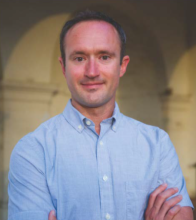
Speaker: Jeremy Fackenthal, PhD
Jeremy Fackenthal, PhD, is an independent filmmaker and nonprofit director. He led the Common Good International Film Festival from 2019 to 2023 and holds a PhD in Philosophy of Religion and Theology from Claremont Graduate University. His work uses film to explore philosophical questions, including a short documentary on spoken word poetry and an upcoming feature-length film. He sees film as art, expression, and entertainment.
Einstein without Tears: His Theories Explained without Math and in Everyday Language
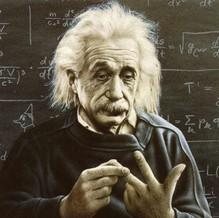
Tuesdays, January 27 - March 3, 2026
4:00 - 5:30PM Central
Explore the fascinating world of Albert Einstein’s theories—no math or science background required. This course introduces key ideas like time travel, warped space, black holes, and gravitational waves, all in accessible terms. We will discover how modern science continues to confirm Einstein’s predictions and why his work remains a source of wonder for both scientists and science fiction fans.
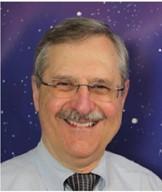
Speaker: Andrew Fraknoi
Andrew Fraknoi is the former chair of the astronomy department at Foothill College and now teaches noncredit astronomy courses at San Francisco State and the University of San Francisco. He is lead author of OpenStax Astronomy, the most widely used free introductory astronomy textbook in North America. Named California Professor of the Year in 2007, he frequently explains astronomy in everyday language on national radio programs. The International Astronomical Union named Asteroid 4859 Fraknoi in his honor as a recognition of his contributions to the public understanding of science. Learn more at http://fraknoi.com.
Pharmaceuticals and Poisons: Chemistry at the Edge

Thursdays, January 22 - February 26, 2026
2:00 - 3:30PM Central
Some substances heal, others harm—and some do both. This chemistry-rich (but non-technical) course explores the fine line between pharmaceuticals and poisons. We will examine drug development, venom-inspired medicine, and the history of FDA regulation shaped by scandal and reform. From aspirin’s industrial roots to Gila monster hormones, participants will uncover the fascinating, sometimes unsettling chemistry behind what we choose to swallow.
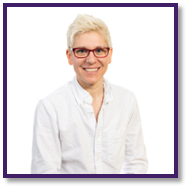
Speaker: Johnnie Hendrickson, PhD
Johnnie Hendrickson, PhD, is a Teaching Professor in the School of Molecular Sciences at Arizona State University. He holds a PhD in chemistry and is the author of the textbook Chemistry in the World. His academic work centers on science communication and the reciprocal relationship between science and society.
Milestones in Medicine

Wednesdays, January 14 - February 18
10:00 - 11:30AM Central
This course highlights transformative milestones in medicine from the 18th century to today, beginning with Jenner’s smallpox vaccine. We will explore key medical and public health advances, the innovators behind them, and the profound effects these breakthroughs have had on longevity and quality of life. The course offers a compelling look at how science and clinical care have worked together to reshape health outcomes over the past two centuries.
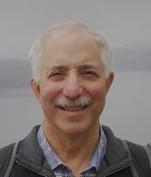
Speaker: Gordon Josephson, MD, MPH
Gordon Josephson, MD, MPH, is a retired emergency physician and former Chief Operating Officer of Baystate Medical Practices in Springfield, Massachusetts. He holds a Master of Public Health from Harvard University and a medical degree from the State University of New York. Dr. Josephson remains active in the lifelong learning community and currently serves as president of the OLLI Board of Directors.
The Noir Novel: Three American Classics
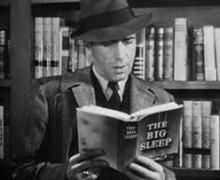
Tuesdays, January 20 - February 24, 2026
10:00 - 11:30AM Central
Explore the noir novel through Dashiell Hammett’s The Maltese Falcon, Raymond Chandler’s The Big Sleep, and Sara Paretsky’s Indemnity Only. From hardboiled detectives navigating gritty cityscapes to Paretsky’s feminist reimagining of the genre, this course traces the evolution of noir fiction. Film clips from classic adaptations will highlight the genre’s impact on both literature and cinema.
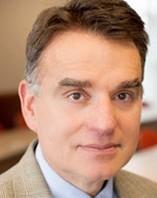
Speaker: Peter Kaye, PhD
Peter Kaye, PhD, is a retired faculty member from Northwestern University, where he combined administrative and teaching roles. He earned his doctorate in English literature and humanities from Stanford University, and his research led to the publication of Dostoevsky and English Modernism by Cambridge University Press. Over nearly 40 years in higher education, he taught a wide range of literature and interdisciplinary courses, with a focus on 19th- and 20th-century fiction. Now teaching online, he remains committed to lively, engaging instruction.
History of Sicily

Mondays, January 26 - March 2, 2026
12:00 - 1:30PM Central
Sicily has been a mythic crossroads of heroes, conquerors, and culture for over 3,000 years. From Odysseus and the Arabo-Norman Golden Age to the Mafia and modern mythmakers like Garibaldi and Coppola, Sicily’s story is rich, complex, and central to Western history. This course explores its pivotal role in shaping civilization—and why Goethe famously said, “To have seen Italy without having seen Sicily is not to have seen Italy at all.”
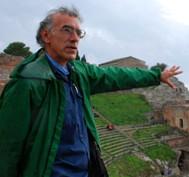
Speaker: Douglas Kenning, PhD
Douglas Kenning, PhD (University of Edinburgh), is a writer, lecturer, and former professor of literature and history. He has taught in the U.S., Tunisia, Japan, and Italy. Now based in the San Francisco Bay Area and Sicily, he offers dynamic lectures on Mediterranean civilizations and leads small-group tours exploring history, myth, and culture.
Heroes of the Holocaust: Lights in the Darkness

Wednesdays, January 14 - February 18, 2026
2:00 - 3:30PM Central
When we think of the Holocaust, we recall the horrors perpetrated by evildoers. Even in humanity’s darkest hours, courageous individuals risked everything to save lives. This course sheds light on these little-known rescuers—ordinary people who defied laws, resisted hate, and acted with moral clarity and compassion. Their uplifting stories are powerful reminders of resilience, morality, and hope.
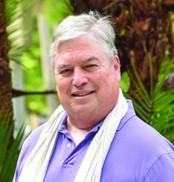
Speaker: Howard Kerner
Howard Kerner, BA, MA (SUNY Albany), is a retired English professor who spent 47 years teaching and publishing over 100 scholarly articles, primarily on the Holocaust. In retirement, he researches and shares the powerful stories of little-known Holocaust rescuers. Through his talks at lifelong learning programs, he highlights acts of extraordinary bravery and altruism—offering timely reminders of human goodness.
Using Google Workspace Tools with Confidence

Wednesdays, January 21 - February 25, 2026
6:00 - 7:30PM Central
This beginner-friendly course introduces Google Workspace tools like Drive, Gmail, Calendar, Docs, Sheets, and Slides. We will learn core features, basic navigation, and practical applications for personal and professional use. With guided instruction and real-world examples, the course builds confidence and foundational skills to boost productivity and collaboration.
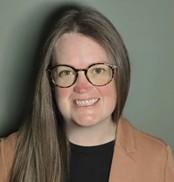
Speaker: Chelsea King
Chelsea King is a learning and development specialist with more than a decade of experience in teaching and training. She began her career as a high school English teacher and now focuses on adult learners, especially in professional development and technology integration. Her approach emphasizes practical, collaborative learning experiences that reflect her commitment to accessible, tech-forward instruction in both educational and corporate settings.
Brain and Behavior in the Era of Digital Technology

Mondays, January 26 - March 2, 2026
10:00 - 11:30AM Central
Explore how digital technologies and artificial intelligence affect the brain, behavior, and mental health. This course examines the impact of modern devices on attention, memory, emotions, and decision-making, while addressing ethical concerns like privacy and tech-based addictions. We will learn how neuroscience and psychology offer tools to support well-being in a rapidly evolving digital world.
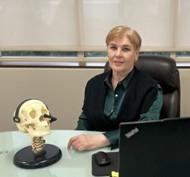
Speaker: Elena Labkovsky, PhD
Elena Labkovsky, PhD, is a neuroscientist and clinical neuropsychologist with over 30 years of experience in cognitive psychology and psychophysiology. She specializes in neurobehavioral modulation, integrating psychological, neuropsychological, and physiological approaches to support emotional and cognitive well-being. Her work focuses on how brain function shapes behavior and on developing innovative, research-based treatments for mental health challenges.
More than Parks: A History of American Conservation
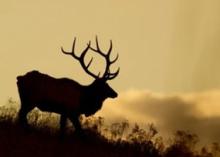
Tuesdays, January 20 - February 24, 2026
12:00 - 1:30PM Central
Explore the evolution of American conservation from the 19th century to today. This course goes beyond national parks to examine how urban reformers, scientists, women activists, and Native communities shaped the movement. Through diverse stories and landscapes, we will gain a deeper understanding of how Americans have fought to preserve—and define—the natural world.
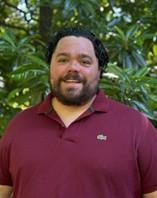
Speaker: Fraser Livingston, PhD
Fraser Livingston is an environmental historian with a PhD in American history from Mississippi State University. His research focuses on the history of science, technology, and agriculture. He received the 2023 Gilbert C. Fite Award for Best Dissertation on Agricultural History and currently works on a book about conservationist George Bird Grinnell. He also serves as book review editor for Environmental History.
Japanese History through the Lens of Shogun
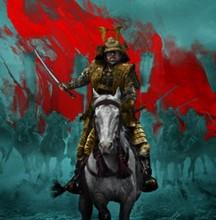
Tuesdays January 20 - February 24, 2026
6:00 - 7:30PM Central
Inspired by the 2024 FX mini-series Shogun, this course explores Japan’s transition from civil war to peace between the 15th and 18th centuries. We will examine the rise of key unifiers, the roles of diverse social groups (like merchants, peasants, women, and outcasts), and the era’s political, cultural, and artistic shifts. For fans of the series or those new to Japanese history, this course offers a rich, accessible introduction.
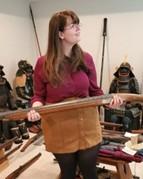
Speaker: Megan McClory
Megan McClory is a doctoral candidate in history at the University of North Carolina at Chapel Hill. Her research explores sword restrictions in early modern Japan and their role in shaping peace and power. A Global Research Fellow at Kokugakuin University, she has spent years living and studying in Japan and holds a BA from Brandeis University.
The History of American Television

Mondays, January 26 - March 2, 2026
2:00 - 3:30PM Central
This engaging, video-rich course tells the story of American television—from its 1920s origins to today’s streaming era. We will explore decades of iconic shows, genres, and cultural moments that shaped the medium and its audiences. From sitcoms and dramas to news and sports, we will rediscover how TV evolved, adapted, and transformed American culture—one broadcast, cable channel, and streaming service at a time.
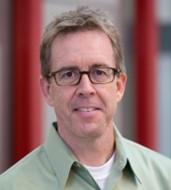
Speaker: Jim (James) McKairnes
Jim McKairnes is a former CBS Television executive who writes and teaches about television history. He has taught at DePaul, Temple, and Middle Tennessee State universities, and is the author of All in the Decade, a book on 1970s television. Since 2020, he has taught regularly for OLLI programs across the country and currently lives in Knoxville, Tennessee.
John James Audubon and the Birds of America
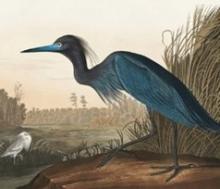
Thursdays, January 22 - February 26, 2026
10:00 - 11:30PM Central
In the 1820s, John James Audubon set out to document every bird species in the US, resulting in The Birds of America, a landmark collection of 435 hand-painted prints. This course explores Audubon’s life, artistic methods, and legacy, highlighting how his work bridges art and science. We will examine selected prints and consider his lasting impact on American natural history.
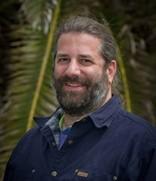
Speaker: Eric Simon, PhD
Eric Simon, PhD, is a professor of Biology at New England College and holds a PhD in biochemistry from Harvard University. An avid traveler and award-winning nature photographer, he leads educational trips to destinations such as Belize, the Galapagos, Tanzania, Cuba, the Amazon River, and Patagonia. Simon is also the author of a best-selling series of college biology textbooks—used in over 40 countries—with more than 2 million copies in print.
The Virtues
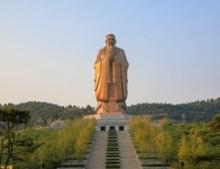
Wednesdays, January 14 - February 18, 2026
12:00 - 1:30PM Central
Virtue theory asks not just how to do good, but how to be good. This course explores timeless questions of character through the lens of thinkers like Aristotle, Jesus, the Buddha, and Confucius. We will reflect on key virtues—such as honesty, courage, compassion, and respect—and consider practical ways to cultivate them in daily life. The full series may be taught as two separate courses.
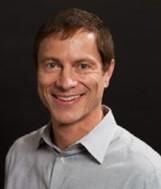
Speaker: David Smith, PhD
David Smith, PhD, is a scholar of religion and philosophy who was raised in a fundamentalist tradition and later became a progressive skeptic. He holds graduate degrees in philosophy of religion and religious studies from Temple University. A former professor at Central Washington University, he now teaches independent seminars and has published widely. His work empowers others to think critically about life’s big questions.
How the US Immigration System (Usually) Works

Fridays, January 16 - February 20, 2026
10:00 - 11:30AM Central
Immigration has always been a complex and emotional issue in US history. This course explores how the immigration system has evolved and how it works today. We will examine key questions about identity, belonging, and national responsibility while engaging in thoughtful, constructive conversations about the future of immigration policy in the United States.
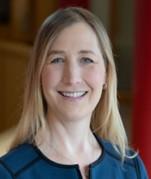
Speaker: Michele Waslin, PhD
Michele Waslin, PhD, is Assistant Director of the Immigration History Research Center at the University of Minnesota–Twin Cities. She develops research initiatives, educational resources, and public programs focused on global migration, race, and ethnicity. Waslin brings extensive experience in immigration policy and public scholarship, helping connect academic research with broader conversations on migration in the United States and beyond.
Post Impressionism and the Birth of Abstraction
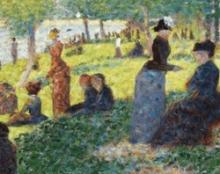
Mondays, January 26 through March 2, 2026
4:00 - 5:30PM Central
This course explores Post-Impressionism’s bold departure from naturalistic light and color, focusing on the expressive use of form, symbolism, and vivid, often unnatural color. Through the work of Cézanne, van Gogh, Gauguin, Seurat, and Matisse, we will trace the movement’s challenge to artistic norms and social values—laying the foundation for modern art and redefining the artist’s role in society.
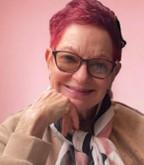
Speaker: Lauren Weingarden
Lauren Weingarden is Professor Emerita of Art History at Florida State University. Her work explores the intersections of literature and visual art in 19th-century culture, focusing on figures like architect Louis Sullivan, Charles Baudelaire, and Édouard Manet. She has published widely and developed an embodied aesthetic model that helps viewers re-experience artists’ encounters with modernity and nature’s transience—an approach that informs her teaching on Impressionism.
Dealing in Futures: The Shape of Science Fiction

Tuesdays, January 20 - February 24, 2026
2:00 - 3:30PM Central
From pulp origins to mainstream dominance, science fiction has evolved into a powerful storytelling form that explores new worlds, ideas, and ways of thinking. This course traces the genre’s growth over two centuries, distinguishing it from fantasy and myth, and highlighting key authors who shaped its direction. We will discover how science fiction reflects cultural change and reimagines the future.
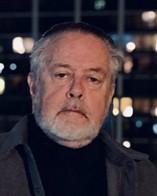
Speaker: Gary Wolfe
Gary Wolfe is emeritus professor of humanities at Roosevelt University and a critic for Locus magazine. He is the author of Evaporating Genres and editor of American Science Fiction volumes for the Library of America. Wolfe has received multiple awards, including a Hugo and a Ditmar for The Coode Street Podcast, which he co-hosts with Jonathan Strahan.
Osher Integrative Health: Navigating Chronic Illness in a Complex Healthcare System

Fridays, January 30 through March 6, 2026
2:00 - 3:30PM Central
This course, presented in partnership with the Osher Collaborative for Integrative Health, features expert speakers from their upcoming national conference, Navigating Chronic Illness in a Complex Healthcare System. Through engaging presentations and discussions, participants will explore how integrative health approaches can address the challenges of living with chronic conditions and help individuals make informed choices within today’s increasingly complex healthcare environment. Topics will focus on whole-person care, patient empowerment, and practical strategies for managing long-term health concerns.
Speakers: Osher Centers for Integrative Health
The Osher Collaborative for Integrative Health is a national network of academic health centers dedicated to advancing whole-person care. Through clinical innovation, research, and education, the Collaborative promotes evidence-based approaches that combine conventional and complementary therapies to support physical, emotional, and social well-being.
Fall 2025 OLLI Online Courses
Fall session spans 8 weeks: 10/06/2025 - 12/06/2025. Each course is scheduled for 6 consecutive weeks.
Alexander Graham Bell and the Telephone, 150 Years Later
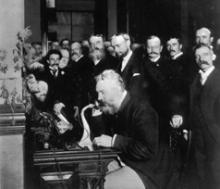
Wednesdays, October 15 - November 19
10:00 - 11:30AM Central
More than any other invention of the past 150 years, the telephone has transformed how we communicate and conduct business. But how was it invented, and why did it have such a profound impact?
This course explores Alexander Graham Bell’s groundbreaking 1875 concept for transmitting sound over an electric wire, his struggles to commercialize the telephone with his father-in-law, Gardiner Hubbard, and his rivalry with inventors Elisha Gray and Thomas Edison. We will also examine the rise and fall of AT&T as a corporate giant and the evolution from wired networks to today’s cellular and smartphone technologies.
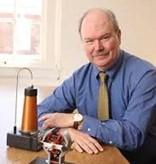
Speaker: Bernard (Bernie) Carlson
Bernard (Bernie) Carlson is Vaughan Professor Emeritus of Humanities at the University of Virginia and an expert on invention, entrepreneurship, and the role of technology in society. He has received the Sally Hacker Prize from the Society for the History of Technology and the William Middleton Prize from the Institution of Electrical and Electronics Engineers. Carlson has also filmed Understanding the Inventions that Changed the World. Now based in Ireland, he directs the MS program in AgInnovation at the University of Galway, where he trains adult learners in product development, startups, and sustainable farming.
American History in Six Songs (Approximately)
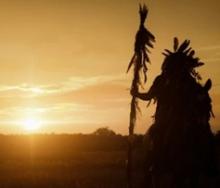
Tuesdays, October 14 - November 18
4:00 - 5:30PM Central
Whether you’re in Macon, Memphis, Muscle Shoals, or Massapequa, music matters, and our varied musical heritage is one of the best ways to understand crucial moments in American history. This course will explore Indigenous expressions, colonial invasion, forced African migration, and the cultural shifts of the 19th, 20th, and 21st centuries. Through the interplay of genres and traditions, we’ll examine how music captures the evolving American experience.
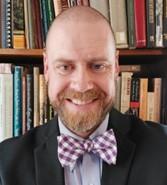
Speaker: Matt Jennings
Matt Jennings, PhD is Professor of History at Middle Georgia State University. He has authored several books on Native American and local history, including New Worlds of Violence, The Flower Hunter and the People, and Ocmulgee National Monument: A Brief History with Field Notes (with poet Gordon Johnston). While he specializes in Native American history, he teaches in a variety of fields, including the history of music in America (perhaps as a way of compensating for his sporadic, and sophomoric efforts on the guitar, mandolin, and banjo).
Creative Conservation
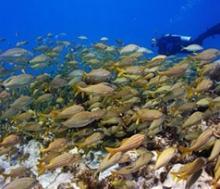
Wednesdays, October 8 - November 12
4:00 - 5:30PM Central
Become educated, entertained, and empowered to become more effective stewards of the natural world. Through real-life conservation stories—drawn from the instructor's personal experiences and her time as host of Mutual of Omaha’s Wild Kingdom—we will highlight the impact of passionate individuals working together to address complex environmental challenges.
This course explores how diverse perspectives, and unique skills contribute to conservation efforts, offering participants practical ways to take meaningful action in protecting wildlife and ecosystems.
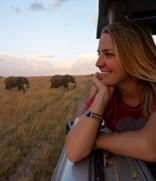
Speaker: Stephanie Arne
Stephanie Arne is an international wildlife conservationist, expedition guide, and storyteller. She is the former host of Mutual of Omaha’s Wild Kingdom and has appeared on Animal Planet, The Weather Channel, The Harry Connick Jr. Show, and The Drew Barrymore Show. Arne’s expertise in wildlife conservation has earned her a seat on the Association of Zoos and Aquariums’ Lion SAFE (Saving Animals from Extinction) committee and the International Union for Conservation of Nature’s (IUCN) Education and Communication Commission.
Graceful Exits: Exploring the Economics, Ethics & Ethos of Death With Dignity

Mondays, October 20 - November 24
4:00 - 5:30PM Central
This course explores the complex issue of Death with Dignity, also known as assisted suicide, through its historical development, ethical debates, legal frameworks, and cultural perspectives. The movement gained national attention through the advocacy of Dr. Jack Kevorkian, sparking widespread discussion on end-of-life choices.
Participants will critically examine evolving policies on physician-assisted suicide and euthanasia while engaging in thoughtful discussions on this sensitive and often controversial topic. Designed to educate and foster awareness, this course provides a comprehensive look at the ethical and legal dimensions of end-of-life decision-making.
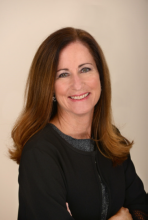
Speaker: Aleen Bayard
Aleen Bayard, PhD is an adjunct faculty member at Northwestern University, teaching leadership and change management. She played a key role in Northwestern’s partnership with the Spertus Institute for Jewish Learning and Leadership, developing the curriculum for the Certificate in Jewish Leadership and teaching in the program for several years. Bayard holds degrees from Stanford University, Columbia University, and Northwestern University and earned her doctorate from Benedictine University. Through her consulting practice, she develops programs on leadership, culture, employee engagement, and team performance.
Impressionism: Color Light and Leisure
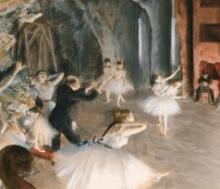
Thursdays, October 9 - November 13
2:00 - 3:30PM Central
Impressionist painters revolutionized art with a new style that emphasized changing atmospheric effects and luminous color harmonies. Their unblended brushstrokes of pure color and simple compositions broke dramatically with traditional pictorial techniques. Rejecting historical, mythological, and religious themes, they instead focused on the rapidly shifting aspects of modern life—capturing scenes from the countryside, the home, and the city.
This course examines the work of Monet, Renoir, Degas, Cassatt, and Morisot from the 1860s to the 1910s, exploring their stylistic and technical innovations, personal lives, and the cultural forces shaping their artistry. Participants will gain an enhanced ability to experience nature and artistic depictions of it with a newly developed sensory, coloristic, and immersive awareness.
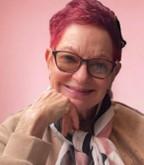
Speaker: Lauren Weingarden
Lauren Weingarden is professor emerita of art history at Florida State University. Weingarden’s publications explore the interrelations between literature and visual arts in 19th century cultural contexts. She is the author of several scholarly books and articles on the American architect Louis Sullivan and on French art and literature, particularly Charles Baudelaire and Édouard Manet. Her interdisciplinary work includes developing an embodied aesthetic model through which art viewers re-experience artists’ immersive encounters with modernity’s fragmentation and nature’s transience—a perspective that deeply informs her teachings on Impressionism.
In Darwin's Footsteps: A Journey to the Galapagos
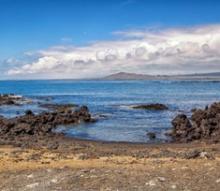
Thursdays, October 16 - November 20
10:00 - 11:30AM Central
From 1831-1836, Charles Darwin circumnavigated the globe aboard the HMS Beagle. In the Galapagos Islands and elsewhere, Darwin collected data that, after decades of study and reflection, formed part of the basis for his publication On the Origin of Species. The ideas presented in that volume remain the foundation of all modern biological thought. Drawing upon original source materials and the instructor’s photos, this course will present the historical and cultural context of Darwin’s era, follow the five-year journey, discuss how Darwin came to his ideas, and explain his theories in detail.
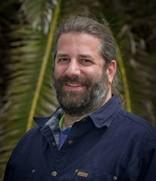
Speaker: Eric Simon
Eric Simon, professor of Biology at New England College, received his PhD in biochemistry from Harvard University. An avid traveler and award-winning nature photographer, Eric leads educational international trips to destinations including Belize, the Galapagos, Tanzania, Cuba, the Amazon River, and Patagonia. Simon is the author of a widely used series of college biology textbooks with over 2 million books in print that help teach biology to students in over 40 countries.
Inequality and Economic Policy

Tuesdays, October 14 - November 18
12:00 - 1:30PM Central
Economics plays a central role in every aspect of society. This course examines the causes and potential solutions to inequality in the US from an economic perspective. We will explore the history of different types of inequality, the underlying data and evidence, and the policy levers available to address these issues. Each lecture, led by a subject matter expert with a PhD in economics, will stand alone. Topics may include climate change, healthcare economics, economic inequality, economic mobility, discrimination in public policy, and the wealth gap.
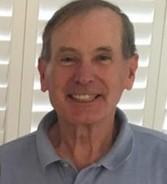
Speaker: Geof Woglom
Geof Woglom, PhD is professor emeritus of economics at Amherst College, where he taught for over 40 years. He has held visiting positions at Cambridge, Harvard, and the London School of Economics, and was a Fulbright Scholar at the University of the Western Cape in Cape Town and at Nanjing University. He has served as an economic consultant for the International Monetary Fund, the Federal Reserve Board, and the Federal Reserve Bank of Boston.
Languages of the World
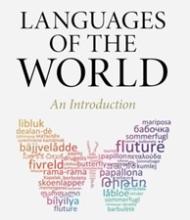
Thursdays, October 16 - November 20
12:00 - 1:30PM Central
Explore the world’s linguistic diversity. With more than 7,000 languages spoken today, their variety offers insight into the evolution of human language, thought, and civilization.
This course examines how languages develop, change, and interact over time. Through a journey across six mystery locations — one per week — we will uncover the historical relationships among languages and the migrations, splits, and connections that have shaped them. By studying the languages spoken in these regions, we will gain a deeper understanding of human history and what it means to be human.

Speaker: Asya Pereltsvaig
Asya Pereltsvaig, PhD earned her degree in English and history from the Hebrew University of Jerusalem and a PhD in linguistics from McGill University. She has taught at Yale and Stanford. An expert in language, history, and their intersections, Pereltsvaig is the author of Languages of the World: An Introduction.
Legendary Shipwrecks of the Great Lakes: Tales from the Inland Seas
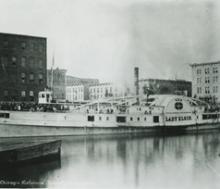
Thursdays, October 9 - November 13
6:00 - 7:30PM Central
Beneath the surface of the Great Lakes lie thousands of shipwrecks, each with a story to tell. This course brings these lost vessels back to life through vivid storytelling and historical exploration.
We’ll examine the tragic sinking of the Lady Elgin, the haunting legacy of the Eastland, the mystery of the Western Reserve, and the enduring legend of the Edmund Fitzgerald, along with other unforgettable wrecks that shaped Great Lakes history. More than just maritime history, this course uncovers the human stories behind these disasters, the forces that doomed them, and the myths that linger today.
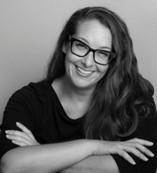
Speaker: Anna Lardinois
Anna Lardinois is an author, storyteller, and history enthusiast with a passion for uncovering dramatic and often chilling tales from the past. She is the author of Shipwrecks of the Great Lakes: Tragedies and Legacies from the Inland Seas (2021) and more than a dozen books on history, folklore, and ghostly legends. Lardinois founded an award-winning tour company specializing in haunted history and previously served as the Pfister Hotel Narrator, chronicling stories from Milwaukee’s most historic hotel. She has hosted the radio show Haunted Heartland and currently leads an online publication focused on entrepreneurship in Wisconsin.
Peeking Inside the Black Box

Tuesdays, October 14 - November 18
2:00 - 3:30PM Central
Have you ever felt like scientists are constantly changing their minds? Do you wonder when research can be trusted to guide decisions about health, behavior, or the environment?
This course offers a behind-the-scenes look at the scientific process, exploring how modern science developed, what scientists actually do, and what makes research reliable. We will examine the strengths and weaknesses of scientific methodology, uncover common pitfalls, and identify red flags for pseudoscience and untrustworthy findings. Rather than relying on blind faith in science, we will learn how to evaluate research critically—and find trust in the process.

Speaker: Johnnie Hendrickson
Dr. Johnnie Hendrickson is a Teaching Professor in the School of Molecular Sciences at Arizona State University; he holds a PhD in chemistry and is the author of the textbook Chemistry in the World. His academic work focuses on science communication, the reciprocal relationship between science and society.
Public Health in Action: Addressing Stress, Equity, and Solutions

Wednesdays, October 15 - November 19
6:00 - 7:30PM Central
In this course, participants will explore the social determinants of health, the physiological mechanisms of stress, and the effects of stress on health and well-being. They will also examine stress- and health-related theoretical frameworks. Through this course, participants will gain an understanding of the factors that influence health and engage in discussions on the importance of equitably promoting health and well-being across populations.
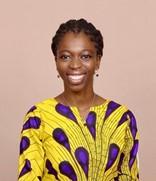
Speaker: Faith Ogungbe
Faith Ogungbe is a doctoral candidate in Public Health at the University of Wisconsin-Milwaukee. She earned bachelor’s and master’s degrees from Northwestern University in anthropology and biotechnology. Ogungbe is deeply committed to health equity and passionate about addressing issues that promote the overall health and well-being of all individuals. Her research interests include maternal and child health, and female reproductive health.
The African American Military Experience: From Revolution to Civil Rights
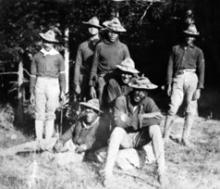
Tuesdays, October 7 - November 11
6:00 - 7:30PM Central
African Americans have served in every US military conflict, fighting for both their country and their own rights. From Black patriots in the Revolutionary War to the 180,000 African Americans who fought for the Union in the Civil War, their contributions have shaped American history. After the war, Black soldiers gained congressional approval to enlist in the peacetime Army, leading to the formation of the “Buffalo Soldiers.”
This course traces their service from the War of 1812 to World War II, highlighting their valor in conflicts abroad and their struggle against segregation and discrimination at home. It is the story of their resilience, sacrifice, and fight for equality in a nation that often failed to recognize their service.
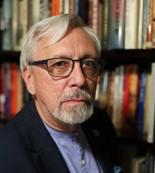
Speaker: John Langellier
John Langellier has spent decades researching African Americans in the US military, beginning in the 1960s. His work includes articles and books such as More Work Than Glory: Buffalo Soldiers in the United States Army, 1866–1916 and Buffalo Soldiers in Arizona, and an extensive National Park Service study on Buffalo Soldiers from the Eastern Seaboard to Hawaii. He has consulted and produced documentaries on African Americans in the armed forces for A&E and PBS, curated museum exhibits, developed curricula, and delivered programs across the US and Europe.
The Films of John Cassavetes and Gena Rowlands: Innovation in Filmmaking and Performance
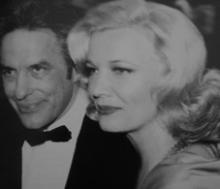
Fridays, October 10 - November 14
10:00 - 11:30AM Central
This course explores the groundbreaking collaborations between John Cassavetes and Gena Rowlands, two of the most influential figures in independent cinema. Cassavetes revolutionized American filmmaking with his raw, character-driven storytelling, while Rowlands’ deeply expressive performances are among the most mesmerizing in film history.
We will examine Cassavetes’ unconventional filmmaking methods, including handheld cinematography, long takes, overlapping dialogue, and spontaneous performances. Rowlands’ emotionally intense acting style will be analyzed through her landmark roles in A Woman Under the Influence (1974), Opening Night (1977), and Gloria (1980).
We'll also explore the collaborative nature of Cassavetes’ productions, his rejection of Hollywood conventions, and his lasting impact on contemporary filmmaking. Participants will gain a deeper understanding of how Cassavetes and Rowlands redefined cinematic storytelling with emotional depth and authenticity.
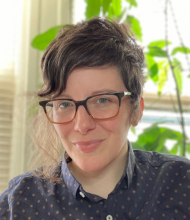
Speaker: Heather Brown
Heather Brown holds a PhD in English with a concentration in rhetoric and composition from the University of Maryland, an M.A. in English from the University of North Carolina–Wilmington. She has taught courses in academic writing, English literature, language and linguistics, women’s literature, feminist theory, and rhetorical criticism. Brown works as a learning designer, specializing in graduate and professional studies programs, including Northwestern University. She is also an adjunct associate professor of academic writing at the University of Maryland Global Campus.
The Life and Times of Nikola Tesla

Mondays, October 6 - November 10
2:00 - 3:30PM Central
This course traces the life and innovations of Nikola Tesla, from his early years and university studies in Graz and Prague to his groundbreaking work in electricity and wireless technology. We will explore his collaborations and rivalries, including his work with Thomas Edison, the “War of the Currents” between AC and DC power, and his partnership with George Westinghouse, which led to the lighting of the 1893 Chicago World’s Fair.
Key topics include Tesla’s telautomaton invention, his wireless experiments, and his race against Marconi in the development of radio. We will examine the Wardenclyffe—Tesla’s ambitious wireless transmission tower, his work during World War I with Telefunken, and his interactions with Franklin Roosevelt. We will conclude with Tesla’s later-life invention of the particle beam weapon, his negotiations to sell it to the Allies during World War II, and the mystery surrounding his secret papers after his death.
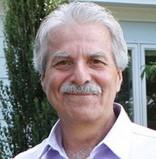
Speaker: Marc Seifer
Marc Seifer, PhD is the author of more than 100 articles and a dozen books, including the acclaimed Wizard: The Life & Times of Nikola Tesla, Ozone Therapy for the Treatment of Viruses, and Tesla: Wizard at War.
A frequent speaker on Tesla and technological history, Seifer has lectured at every International Tesla Conference and has presented at institutions including the Federal Reserve Bank of Boston, Lucasfilm’s Industrial Light & Magic, West Point Military Academy, and the United Nations. His work has been featured in many major publications and has appeared on the BBC, NPR, and in The Tesla Files, a five-part History Channel series which has aired in 40 countries.
The Magic of Motown
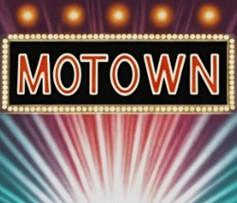
Tuesdays, October 28 - December 2
10:00 - 11:30AM Central
Explore Motown’s golden era from the late 1950s to the 1970s, a period marked by groundbreaking songwriting, iconic artists, and profound social influence. Discover how Motown’s innovative production methods shaped its timeless sound, broke racial barriers, and adapted to shifting cultural landscapes to achieve worldwide acclaim. Featuring legendary artists and curated tracks and videos, this course concludes with a celebration of Motown’s transformative first 25 years. Join us to experience the enduring magic of Motown and its lasting impact on music and culture.

Speaker: Mike Agron
Mike Agron grew up in L.A., the heart of the recording and entertainment industry. He loved music so much he wanted to become a recording engineer. Fate had different plans, and he ended up with a successful career in hi-tech, including founding a webinar marketing agency. He has fulfilled his musical and entertainment passions by offering his varied and uniquely popular seminars to learners across the country.
The Power of One in Steven Spielberg Films
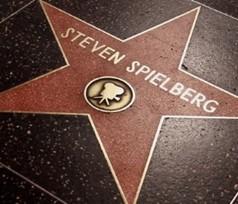
Mondays, October 20 - November 24
12:00 - 1:30PM Central
In Steven Spielberg’s Academy Award-winning Schindler’s List (1993), a character quotes from scripture: “He who saves a life saves the world entire.” Through scene-by-scene analysis, this course explores variations on this theme across a selection of Spielberg films.
With a focus on dialogue and action that reveal characters’ inner beliefs and moral choices, we will examine how the world is saved—or not. We will analyze the following films: Close Encounters of the Third Kind, Lincoln, Bridge of Spies, Saving Private Ryan, Munich, and Schindler’s List.
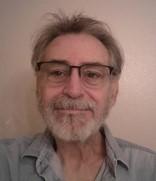
Speaker: Bernard Epps
Bernard (Butch) Epps earned his undergraduate degree from Loyola Marymount University, graduating cum laude as an award-winning film production major. He received his MFA from the UCLA School of Film and Television’s graduate Producers Program, where he specialized in story development and working with screenwriters. At UCLA, he served as academic liaison to the MFA Producers Program faculty, including studio heads, development executives, and industry professionals. Epps has taught film appreciation courses with a strong emphasis on story analysis.

